
Home / Our services / Addiction and substance abuse
What's worrying you?
Addiction and substance abuse
Written by Luisa Kos
Why therapy is essential for addiction recovery
Addiction is not just about substance use—it often stems from deeper emotional pain, trauma, stress, or mental health challenges. Many people turn to substances or addictive behaviours as a way to cope, only to find themselves caught in a cycle that feels impossible to break. Therapy offers a structured and supportive way to understand and address addiction at its core.
Key benefits of therapy for addiction:
- Identifying the root causes – Understanding the emotional, psychological, and environmental factors that contribute to substance use.
- Developing healthier coping strategies – Replacing addictive behaviours with sustainable, positive coping mechanisms.
- Managing triggers and cravings – Learning how to recognise and handle situations that increase the risk of relapse.
- Rebuilding relationships and restoring trust – Addressing the impact of addiction on family, friendships, and work.
- Addressing co-occurring mental health issues – Many people with addiction also experience anxiety, depression, PTSD, or other mental health conditions that need attention.
- Creating a sustainable plan for long-term recovery – Recovery is an ongoing process, and therapy helps build a personalised strategy for maintaining progress.
Addiction recovery is not about willpower alone—it’s about having the right support system, tools, and guidance to make lasting changes.
Understanding different types of addiction
Addiction is not limited to substances like alcohol or drugs. Many individuals struggle with compulsive behaviours that can negatively impact their lives. Therapy can help with:
- Alcohol addiction – Understanding dependency, withdrawal, and strategies for moderation or sobriety.
- Drug addiction – Addressing both prescription and recreational drug misuse and its underlying causes.
- Gambling addiction – Overcoming compulsive gambling and financial consequences.
- Sex and love addiction – Managing unhealthy relationship patterns, compulsive behaviours, and self-worth issues.
- Internet and social media addiction – Reducing excessive screen time and dependency on digital platforms.
- Food addiction and emotional eating – Developing a healthier relationship with food and body image.
Regardless of the type of addiction, therapy provides a structured path towards regaining control and improving overall well-being.
Therapists who understand addiction
Seeking therapy for addiction can feel daunting, but finding a professional who truly understands your experience can make all the difference. Our directory features therapists with expertise in addiction treatment, using a variety of evidence-based approaches, including:
- Cognitive Behavioural Therapy (CBT) – Identifying negative thought patterns and developing healthier behaviours.
- Motivational Interviewing (MI) – Strengthening your motivation and commitment to change.
- Trauma-informed therapy – Addressing past experiences that may contribute to substance use.
- Mindfulness & stress reduction – Learning techniques to manage cravings, stress, and emotional distress.
- 12-step facilitation – Exploring structured recovery programs such as Alcoholics Anonymous or Narcotics Anonymous if they align with your needs.
- Harm reduction therapy – Supporting individuals who are not ready for complete abstinence but want to reduce harmful behaviours.
Our therapists take a compassionate, non-shaming approach, focusing on empowerment and progress rather than blame or guilt.
A Supportive and non-judgmental space
Many people struggling with addiction fear being judged, misunderstood, or labelled. The therapists in our directory provide a confidential and understanding space where you can talk openly about your challenges.
Whether you’re in the early stages of recognising a problem, actively working towards recovery, or maintaining sobriety, therapy can be a powerful tool for lasting change.
Does therapy work for addiction?
Therapy has been shown to be highly effective in treating addiction, especially when combined with other forms of support such as medical care, peer support groups, and lifestyle changes. Many people find that therapy helps them:
- Gain deeper self-awareness about their addiction
- Replace harmful habits with healthier alternatives
- Improve emotional regulation and stress management
- Build confidence in their ability to maintain recovery
No matter how long you have been struggling, it is never too late to seek help.
My identify shifted when I got into recovery. That’s who I am now, and it actually gives me greater pleasure to have that identity than to be a musician or anything else. It gives me a spiritual anchor.
Eric Clapton
Find a specialist
Recovery looks different for everyone, and finding the right therapist can be a crucial step in your journey. Our directory allows you to search for addiction specialists based on location, therapy style, and specific areas of expertise. Whether you’re looking for in-person sessions or online support, you can find a therapist who aligns with your needs.
Start your search today and take the first step towards a healthier, more fulfilling life.
Therapists who can help with addiction and substance abuse

Luq Adejumo
I have Master’s degree (MSc) in Person-centred psychotherapy and a Diploma in Contemporary Person-centred psychotherapy from The Metanoia Institute

Olga Konstantinidou
I am a multilingual Consultant Clinical Psychologist (English and Greek), recognised by the BPS and HCPC, offering online therapy. I work integratively, drawing on approaches such as CBT, Schema Therapy, DBT, Mindfulness, CFT, CAT and systemic therapy. My approach is collaborative and tailored to each person, combining reflection and practical strategies to support meaningful change.

Joggs Camfield
Every person is unique, experiencing an individual journey that sometimes can become difficult to navigate. We can lose our way and the challenges and obstacles we face are hard to negotiate alone.

Catherine Vij
I specialise in women’s mental health, perinatal mood, anxiety, grief and loss. I bring compassion and understanding to the therapy sessions and draw from my training as a counsellor as well as my experiences working in the NHS and the charitable sector
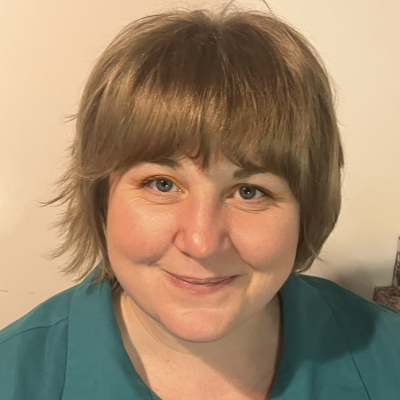
Alena Todorov
I am a UKCP registered Psychotherapist and Certified Transactional Analyst with over eight years of clinical experience and a background in organisational psychology. I work relationally using a Transactional Analysis framework, informed by trauma aware, attachment based, somatic, and CBT influenced approaches. My work focuses on patterns, emotional regulation, identity, and relationship difficulties, including anxiety, low mood, neurodivergence, and complex trauma. I offer an LGBTQ+ affirmative, culturally responsive space and work at a pace that respects the nervous system.
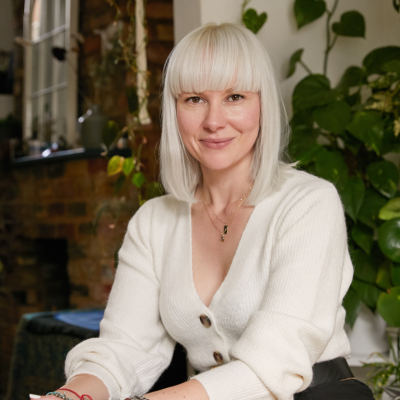
Claudia Behnke
I am a qualified couples counsellor and psychotherapist based in Westcliff-on-Sea (near Chalkwell Park), offering therapy in person and online via Zoom. I specialise in relationship counselling, attachment-based work, and relational patterns, helping couples and individuals improve communication, strengthen emotional connection, and navigate relationship challenges. My primary couples modality is Terry Real’s Relational Life Therapy (RLT), an evidence-based approach focused on accountability, emotional honesty, and building secure, respectful partnerships. I also have specialist experience working with codependency and love addiction, supporting clients to move out of unhealthy relational dynamics and develop healthier boundaries and self-worth. I work with a wide range of issues including relationship conflict, emotional disconnection, infidelity, trust issues, intimacy concerns, anxiety, self-esteem, identity transitions, and life stress. My practice is inclusive and affirming, welcoming clients of all genders, sexual orientations, relationship structures, and cultural backgrounds. My integrative approach draws on Relational Life Therapy (RLT), trauma-informed therapy (Janina Fisher), Psychodynamic therapy, Imago relationship therapy, and Transpersonal psychology, allowing sessions to be tailored to each client’s unique needs and goals.

Steve Altman
I am a UKCP-accredited psychotherapist with a background in frontline mental health support, including work as a Samaritan, peer support worker, and co-ordinator of a suicide-prevention respite sanctuary. I have extensive experience supporting people with trauma, emotional distress, and suicidal thoughts. This work has shaped a calm, compassionate way of working that helps people reconnect with meaning, creativity, and their capacity for life.

Lucie Nalletamby
I am a Clinical Psychologist with over a decade of experience working in the NHS and private practice. I have worked in the NHS since 2011, providing assessment and treatment for adults, young people and families experiencing a wide range of mental health difficulties as a result of experiences of trauma. Alongside working in the NHS, I have been in private practice since 2017, where I specialise in trauma-focused therapy. Since qualifying, I have completed a number of specialist trainings including EMDR, CBT, NET and Schema-focussed Therapy. I draw on these to provide tailored and individual therapy. I work with individuals who have experienced single-incident trauma, such as accidents and assaults, as well as complex trauma, including childhood abuse, neglect, domestic violence, discrimination and other experiences that can lead to complex PTSD.
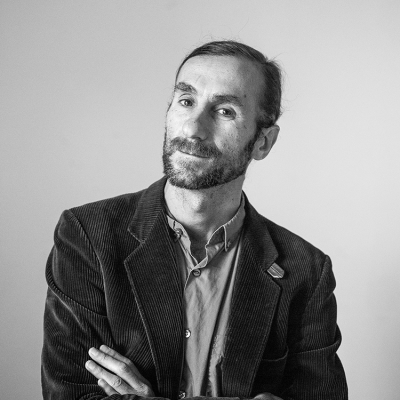
Javier Calatrava
Transpersonal Integrative Psychotherapist
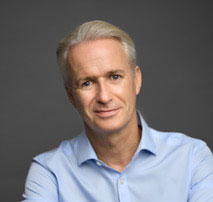
Paul De Bruin
In addition to my private practice, I’ve worked in various settings, including the NHS Mental Health Service, Maytree Suicide Respite Centre, and several other charitable organisations. My training was at the Centre for Counselling and Psychotherapy Education (CCPE). I’m a registered member of the United Kingdom Council for Psychotherapy (UKCP), an accredited member of The National Counselling & Psychotherapy Society (NCPS), and a Registered Member of the BACP. I adhere to their code of ethics. I’m committed to complete confidentiality, ethical practice and utmost discretion.

James Crossland
I am an integrative counsellor with experience working with individuals and couples, specialising in relationship and attachment issues, childhood trauma, and patterns rooted in early relational experiences. My work includes supporting clients with anxiety, depression, low self-esteem, addiction and problematic behaviours, burnout, and major life transitions. Prior to qualifying as a counsellor, I worked for many years in the creative industries as an international music producer, which gives me a strong understanding of high-pressure, performance-driven environments and informs my work with creatives and professionals.
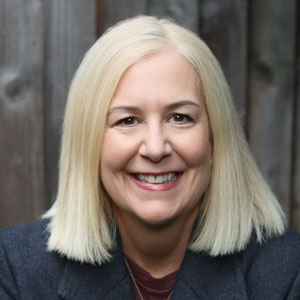
Vicki Power
Vicki is an integrative therapist working with individuals and couples

Millie Gentle
I’ve worked as a counsellor for over 10 years, working in private practice, for charities and EAPs. I’ve been in private practice since 2019, working with clients facing a number of different issues. My main areas of expertise are; – Bereavement and loss – New parenthood/pregnancy and post-natal anxiety and depression – Sexual trauma – Anxiety / self-confidence and self-esteem issues – Relationship and family issues Prior to being a therapist, my career was in film and theatre. I work with a lot with people in these industries and I also work for an Arts organisation that connects those who work in the Arts with therapy.

Samuel Smith
I am a Registered Member of the British Association for Counselling and Psychotherapy (BACP) and practise in accordance with their Ethical Framework. I hold a Postgraduate Diploma in Existential Psychotherapy and Counselling from the New School of Psychotherapy and Counselling, London. Alongside my clinical practice, I am engaged in doctoral research jointly with the New School and Middlesex University, exploring how gender shapes therapeutic relationships, particularly in the context of working with women who have experienced trauma. This ongoing work continues to deepen my commitment to a therapeutic practice that is inclusive, reflective and sensitive to the dynamics of power, identity and social context.

Adijat Eniola Fetuga
My approach to therapy is collaborative, direct, and goal-oriented. I believe in empowering clients to take an active role in their treatment, working together to identify the most effective strategies for their unique needs. Additionally, with an MA in Psychological and Psychiatric Anthropology, I approach my practice with a global perspective, incorporating diverse cultural and social contexts into our work. I strive to create a safe and supportive environment for all my clients, regardless of their background or experiences. If you’re looking for a therapist who can help you navigate life’s challenges and support you in achieving your goals, I’m here to help.

Arran Thomas
I find seeking therapy usually starts with seeds of hope. Hope for things to change, to become ‘unstuck’, to have understanding, to find peace. As a qualified counsellor I offer a compassionate, supportive space to cultivate these seeds of hope so that you can grow to overcome the issues you face and move forward to a more positive place. – My Approach – Everyone has an inherent wisdom within themselves towards healing and transformation through the struggles or difficulties of life. My role is to facilitate this journey, give it a nudge in the right direction. When we initially meet, I will apply gentle curiosity to explore what brings you to therapy and together we can have a look at what you might want to gain from the process. My aim is for you to feel seen, heard and warmly accepted. I value the 3 A’s as a rough guide for what can emerge from the issues you choose to bring: – Awareness through exploring thoughts, feelings, behaviours, patterns and responses to stress. You will come to recognise how these have been shaped by life experiences. – Acceptance expands from awareness, of different parts of yourself, your story, your identity, your past, the present, the other people in your life. – Accountability strengthens with acceptance and awareness, an increasing sense of empowerment, choice and freedom in how you want to move forward and live your life with resilience. Whether it is anxiety, relationship difficulties, depression, low self-esteem, grief, trauma, abuse, addiction or feelings of shame, anger, overwhelm, confusion and loneliness, you don’t have to struggle alone with these issues.
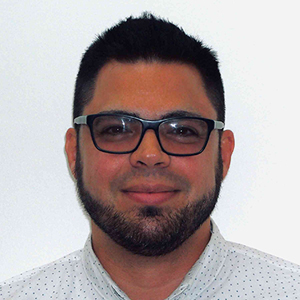
Manuel Navarro
I am a systemic and family psychotherapist with 20 years of experience working in mental health services in the NHS. I have worked with adolescents and adults who suffer from mental health or emotional difficulties such as depression, anxiety and panic, and eating disorders. I also work with couples who are looking to improve their relationship, and I am registered with the Emotionally Focused Therapy Institute (ICEEFT). My approach to therapy recognises that the individual, as well as their family members all have strengths and strategies which can be used to overcome symptoms and difficulties. I am committed to empirical methods of therapy, and I offer systemic therapy including attachment, interpersonal neurobiology, NVR, and communication skills. Within my therapy framework I can meet with you individually, or with your family members, depending on your circumstances. You can contact me for a 30-minute free phone consultation, so that we can discuss whether we could work together towards your goals.

Siobhan Maguire-Swartz
Whatever your reasons for seeking therapy, I am here to listen and support you. I will focus on you with care, compassion, empathy and a non-shaming approach. I work in an integrated way combining different techniques and approaches from a range of styles to best suit clients as we get to know each other. I tailor my approach to best suit your hopes and goals and (most importantly) to stay alongside you in your process. Counselling and Therapy is an organic, evolving, mutual, process where client and therapist collaborate in relationship to support growth. I adapt my style as the work progresses to help achieve your aims. Therapy can be difficult, it’s not a quick fix and it can be painful to look back at traumatic experiences, memories, or current difficulties. That is why I will go at your pace, paying close attention to your needs, staying in constant dialogue, pausing or slowing down when needed. It is important you feel secure within the confidential setting, to explore your issues, so that the work can help to safely heal and transform. I trained in the Humanistic style, meaning I integrate a range of psychotherapeutic theories including: Gestalt Therapy, Transactional Analysis, Person-Centred Therapy and Relational techniques. Having worked with my body as a dance artist for nearly 20 years, I am able to offer a more embodied, somatic-based approach if requested.

Daisy Marsh
I am a dedicated therapist with experience in both online and face-to-face counselling. My focus lies in offering personalised support and helping individuals and couples navigate through challenges such as anxiety and depression.

Juliana Jolly
I offer an empathetic and confidential space alongside extensive theoretical understanding of and experience with psychology.
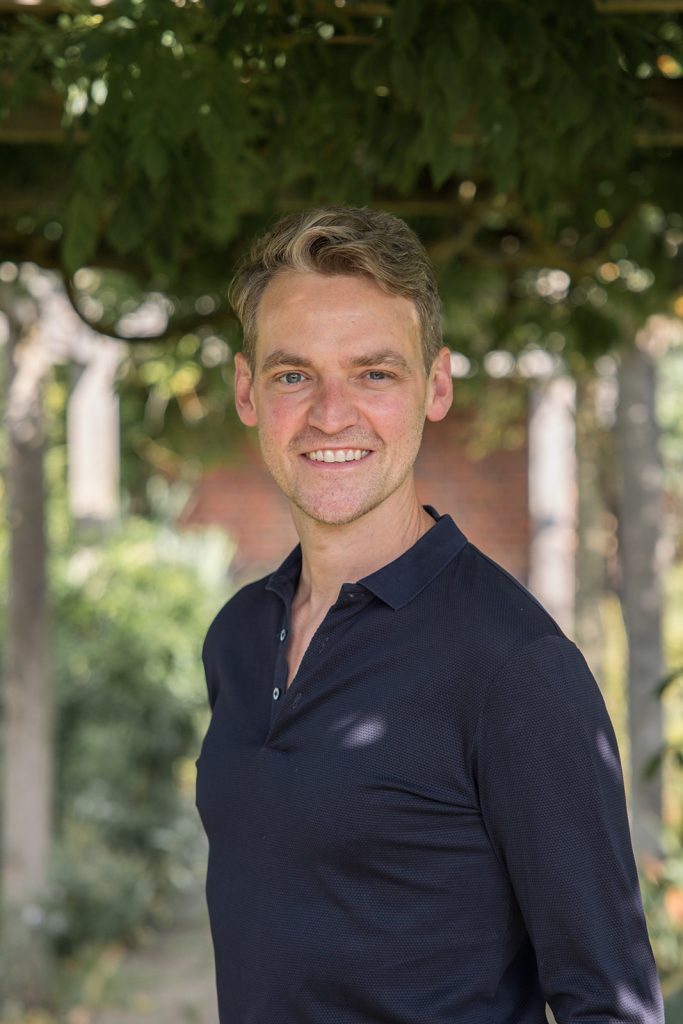
Peter Reynolds
I hold an Advanced Diploma in Integrative Counselling. My training draws on a range of therapeutic approaches, which allows me to adapt my work to suit the needs of each individual client. Before training as a counsellor, I worked for many years in the arts, where I developed a deep interest in people’s stories, emotions and inner worlds — an interest that eventually led me to counselling. Alongside my private practice, I have worked in a bereavement charity and in LGBTQ+ mental health services. These experiences have given me particular insight into grief, loss, identity and the impact of marginalisation — all of which continue to inform my work today.
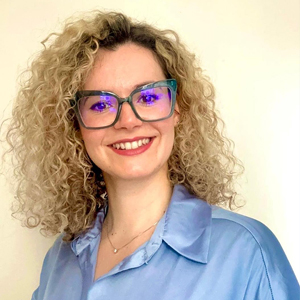
Maria Troupkou
I am a qualified Dance Movement Psychotherapist offering individual therapy sessions to children and adults.

Lynsey Hotchkies
I am experienced in working with individuals, groups and organisations.
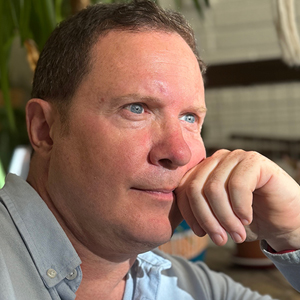
Nick Stewart
I am an experienced Cognitive Behavioural Therapist. I trained at Kings College London, in the Institute of Psychiatry, Psychology & Neuroscience (IOPPN), graduating in 2018.

Richard Mann
As a therapist, I currently work for the NHS and work in private practice. I work with Anxiety, Depression and Trauma and specialise in Addiction, Relationship Issues (Infidelity, Intimacy issues and compulsive sexual behaviour ), LGBTQIA+ and Neurodiversity (Autistic and ADHD clients ) . I believe that therapy should be tailored specially for your individual needs – whether depression, anxiety, self-esteem or PTSD – and I provide a relaxed, safe space where you can feel free to share your issues confidentially and without judgement.
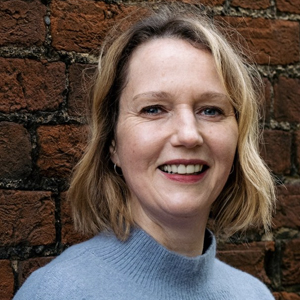
Katherine Watt
I’m a warm, perceptive and experienced therapist, trained in the person-centred approach. Person-centred counselling offers a supportive space in your life, where you can explore your feelings and experiences at whatever pace is comfortable for you.

Dafina Ganeva
I started my psychotherapy career as a volunteer of the bereavement team in St.Christopher’s hospice.

Amanda Salib
Shame dies when stories are shared in safe spaces. Each of us has our own unique story, and over my 7 years, I’ve had the privilege of hearing stories from people of all ages and backgrounds.

Amandeep Chana
It is important to me that I create a safe, warm and welcoming environment for you to be yourself. I know that sometimes we can feel like the world is against us.

Billi Silverstein
Seeking therapy can be a complex journey, requiring both commitment and emotional investment. She believes that within a safe and empowering relationship everyone has the capacity to become agents of change.

Eric Bettelheim
Unlike most psychotherapists I have substantial experience in the professions, business and academia.
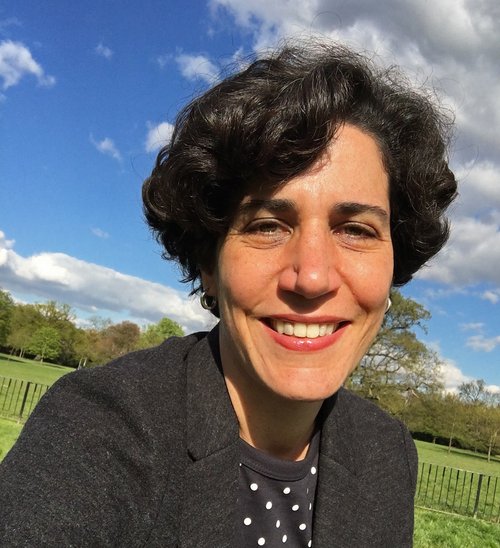
Luisa Kos
I am a psychodynamic psychotherapist trained at WPF and Tavistock Relationships, and a registered member of the BACP. Since qualifying in 2015, I have worked with both couples and individuals in South London, offering short and long-term therapy in person and online. I founded Dulwich Psychotherapy and South London Therapy Group, where I run a private practice and manage therapy rooms that host a community of around 20 practitioners. Before retraining, I spent 15 years in advertising and publishing, holding senior roles in user experience in New York and London, which gives me a unique perspective on the challenges of high-pressure professional environments.

